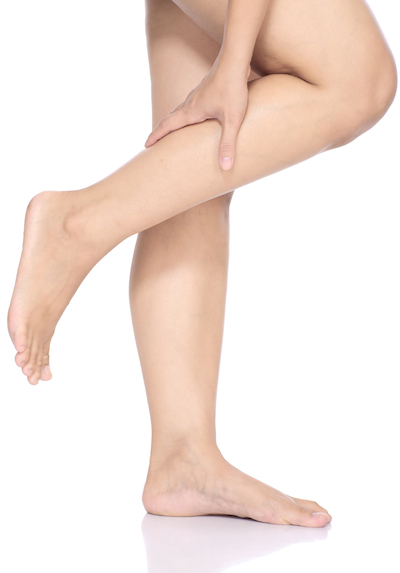
Spider veins most commonly develop on the face and legs. The small veins that appear on the face are caused by sun damage. The top blood vessels are enlarged and the outer layer of skin is thinner, making it more translucent and easier to see the veins. In the legs, spider veins mainly appear due to genetics, but pregnancy, obesity, a sedentary lifestyle, and localized trauma can also cause them to appear.
How are spider veins & facial veins treated?
Facial veins respond very well to laser treatment. For the legs, small and medium-sized veins respond best to laser treatment. Large spider veins respond poorly to laser treatment and are best treated with sclerotherapy, which involves collapsing the veins by injecting a saline solution.
During the course of treatment:
- A laser is applied to the affected area
- The laser targets blood in the vessels of the affected area
- The small vessels occlude and shrink, no longer filing with blood
You will feel a sensation similar to a rubber band snapping against the skin, but a blast of cold air from the laser makes the sensation quickly subside. Numbing cream may be used to make the treatment more comfortable.
What to expect after treatment
Immediately following treatment, spider veins may disappear, or alternatively, may temporarily darken and become more visible. In four to six weeks, your spider veins will fade. Redness or swelling may appear after treatment, but should be gone within a day and you can resume normal activities immediately.
How many treatments are required?
Typically, two to six treatments are needed. As new spider veins appear, touch ups are often needed. Treatments vary between 15-30 minutes, depending on the size of the area treated.
